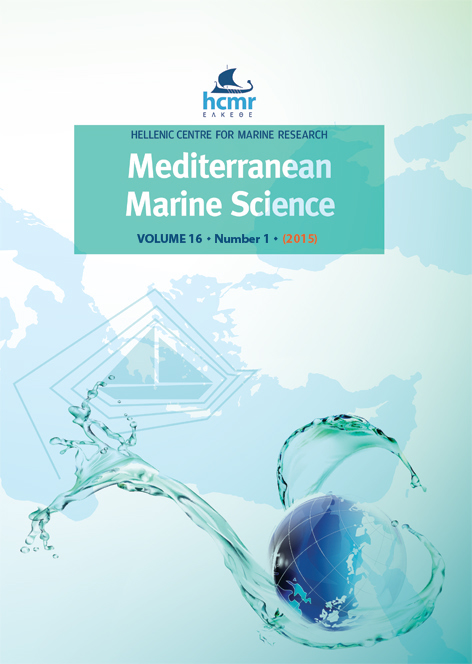Climate-driven changes in life-history traits of the bastard grunt (Pomadasys incisus) in the north-western Mediterranean
Abstract
This study evaluates the influence of sea water temperature on the life-history traits of the thermophilic bastard grunt Pomadasys incisus in the Catalan coast. We compared two key traits of this species, condition and reproduction, from populations in two separate areas with different thermal regimes: the Gulf of Roses (cold area) and the Ebre Delta (warm area). Specimens were collected monthly from each area between 2010 and 2012. The results were also compared with those given in the literature from sites where the species is more common, i.e. the southern Mediterranean and eastern Atlantic. Our findings indicate that, compared to the populations in warmer environments, the population inhabiting the colder waters appears to be in significantly poorer condition and there is some deviance in their life-history traits: egg size and quality being traded-off for higher egg numbers; lower lengths at maturity and alterations to spawning phenology. A certain degree of plasticity in life-history traits may favour the process of expansion and establishment of this thermophilic species into newly available but colder habitats of the north-western Mediterranean under a scenario of climate change.
Article Details
- Zitationsvorschlag
-
VILLEGAS-HERNÁNDEZ, H., LLORET, J., & MUÑOZ, M. (2014). Climate-driven changes in life-history traits of the bastard grunt (Pomadasys incisus) in the north-western Mediterranean. Mediterranean Marine Science, 16(1), 21–30. https://doi.org/10.12681/mms.951
- Ausgabe
- Vol 16, No 1 (2015)
- Rubrik
- Research Article
Authors who publish with this journal agree to the following terms:
- Authors retain copyright and grant the journal right of first publication with the work simultaneously licensed under a Creative Commons Attribution Non-Commercial License that allows others to share the work with an acknowledgement of the work's authorship and initial publication in this journal.
- Authors are able to enter into separate, additional contractual arrangements for the non-exclusive distribution of the journal's published version of the work (e.g. post it to an institutional repository or publish it in a book), with an acknowledgement of its initial publication in this journal.
- Authors are permitted and encouraged to post their work online (preferably in institutional repositories or on their website) prior to and during the submission process, as it can lead to productive exchanges, as well as earlier and greater citation of published work (See The Effect of Open Access).





